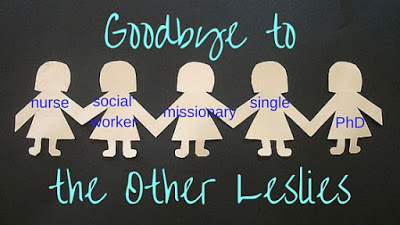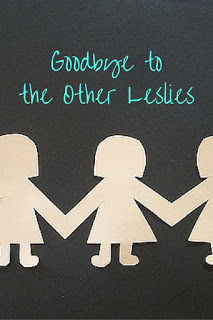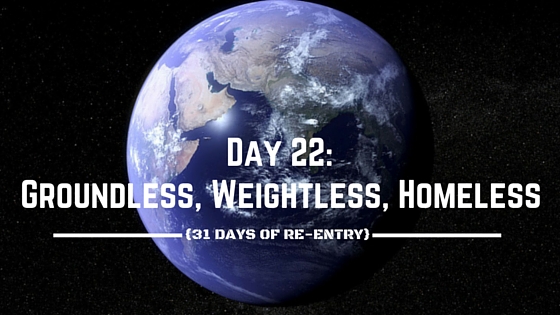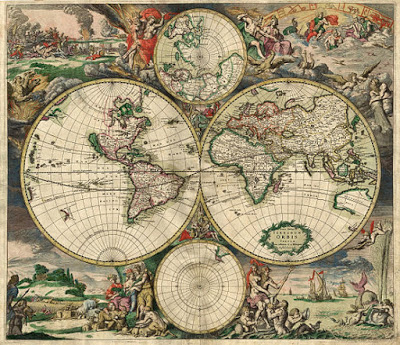I’m over at the online missions journal A Life Overseas today with some thoughts about calling.
I don’t like to say that God “calls me” anymore.
When I graduated from a Christian college, I believed I would change the world. I was determined to be useful, significant and different. I wasn’t going to join the throng of sell-outs who eventually move to comfy white-picket homes in the suburbs and attend churches where conversations afterward are meaningless and trivial, because I was called to be a missionary–the highest calling a Christian can have.
Every decision I made propelled me on that path. College? A place that would offer overseas opportunities. Major? Something useful, but that could also slide under the radar if I went to a closed country that was anti-Christian. First job? Teaching in inner city Chicago until a door opened up to go overseas (obviously). First chance to go abroad? China, because closed countries are the place to be if you really love Jesus.
I finally had the chance to answer God’s call on my life to serve Him as a missionary after a few years of teaching in the states. I sold my car, quit my job and moved to China. Yes, I was lonely at times, but I was finally doing what I was called to do, so I loved knowing that I was living such a high calling and making a difference in the world. And then something tragic happened: I fell in love with an actor in Chicago, who was not “called to missions” (careful about short trips back home when you have your guard down).
And I had to face some hard questions.
What if God hadn’t called me to missions after all?
What if I was being just a tad prideful about my “calling”?
What if I was worshipping my call?
When I made the decision to move back to the states and get engaged, I felt like a failure. Though God had made it unmistakably clear that this was the man He intended for me, I still struggled with all the demons in my head yelling at me that I was selling out by leaving the mission field.
But God.
He wanted more for me. He wanted me to step down off my pedestal and walk among the “uncalled” for a while. He wanted me to untangle my identity, unwinding all the programming I had received that led me to believe that I was “more,” that I was doing “more” and being “more” than other Christians. The lies. That my life was somehow more meaningful because I was serving Him in another country. That I was special because I had that call on my life.
And He wanted me to understand something about the way He calls His children.
I am not called to missions, marriage, motherhood, writing or teaching. I am called, first and foremost, to intimacy with Jesus Christ.
That is my call.
Even art: writing, acting, singing, painting, sculpting, dancing or any other creative venture as a calling on our lives has the potential to lure us away from our First Love, to become a golden idol that we prostrate ourselves to.
So I no longer raise “calling” to the level that I once did, because I tried to find myself there and got lost. When my calling was taken away, I was left wandering in the soul wilderness of despair, a place of despondency where those who are loved as image-bearers of Jesus have no place.
So to what—to whom–are we called?
We are called to Jesus Christ—to lean on His breast, wipe His feet with our hair, dance before Him, fall in love again and again, feast on His body and bread, and indulge in the love that died for us. And out of the rush of that call, we are to give Him all that we have and all that we are. If we have the gift of words, then we write for Him. If He opens doors to serve Him through missions, we pour ourselves out abroad just as we would at home. If He gives us family and children, then we enjoy them, work for them and love them hard. And if He gifts us in dance, acting, song, painting or any other creative venture, we wildly hand back these gifts as an offering to Him.
And if He moves us to a place we don’t want to be? If we are injured and can do longer paint or sculpt? If we age and can no longer dance? When our children grow up and move away? Then we will not fall apart, because we are NOT our art. We are not our ministry. We are not our “calling.” We belong to Christ and are stamped with the love of the Holy Spirit, in whom we live and move and have our being. And He never looked at us and saw our gifts anyway (though they made Him smile).
He has always looked at us and seen us as His beloved adopted children, and He is the one that stands singing over us, dancing in joy to be with us and giving us the most profound words ever written. Our callings are a taste of glory, a gift to be given back, an opportunity to experiment with creating like God creates. But they can never define us, make us complete or bring us ultimate fulfillment, because they are an imperfect tool to glorify a perfect God.
So, no, I no longer say that “God calls me,” in the same smug way that I once did, assuming that a call is forever or even that there is a hierarchy of calls, with some being more holy than others. Instead, if I use those words, I preface it by saying that I am called to this “for now.” And if and when that calling shifts, I am left standing on solid ground, because my calling is to intimacy with Jesus Christ. And He never changes.
Republished at For Every Mom on May 12, 2016
~~~
Previous Post: Surviving the Culture Shock of Motherhood
Next Post: 21 Ways to Live Counter-culturally












